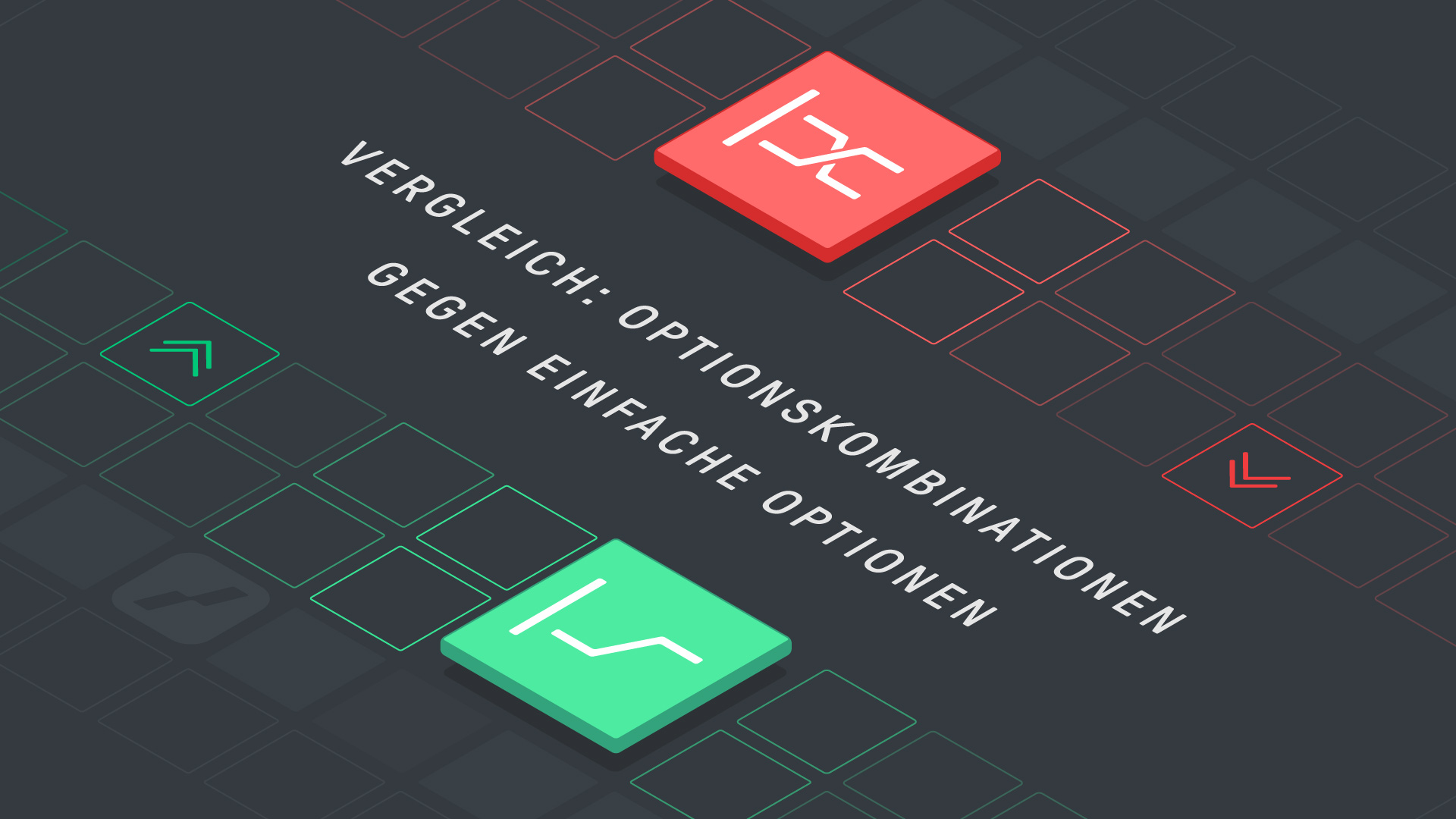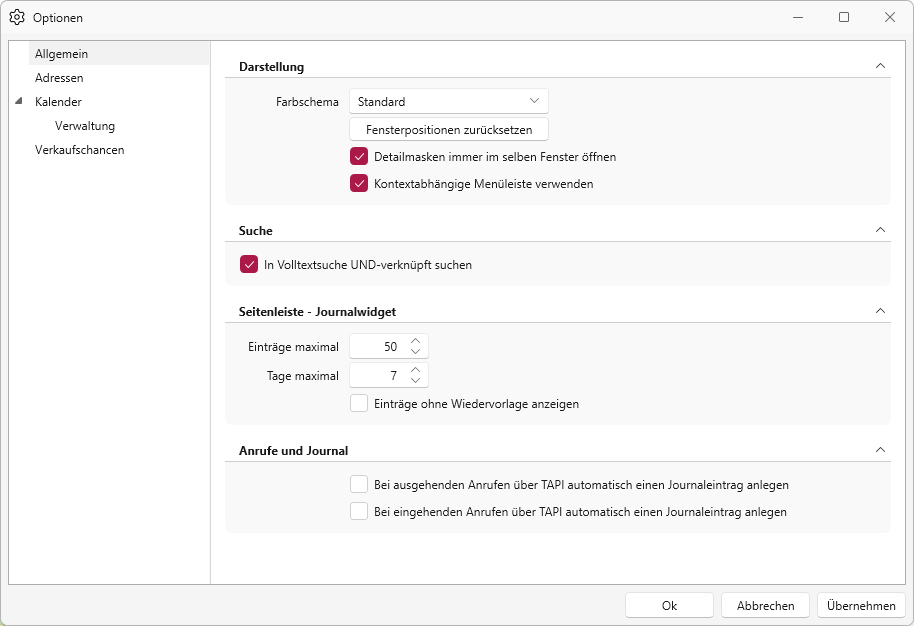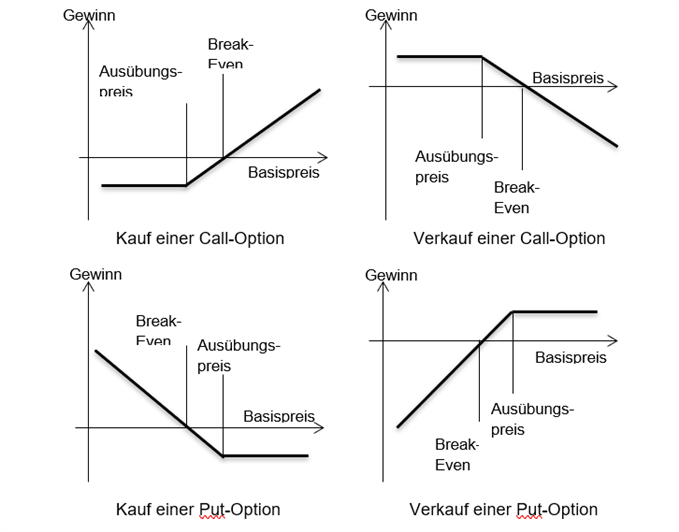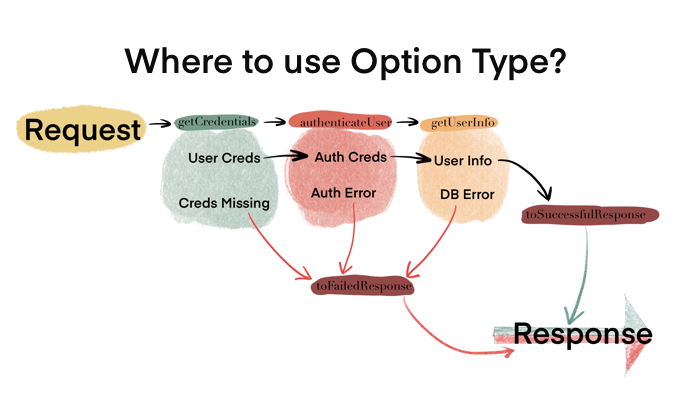In programming languages (especially functional programming languages) and type theory, an option type or maybe type is a polymorphic type that represents encapsulation of an optional value; e.g., it is used as the return type of functions which may or may not return a meaningful value when they are applied. It consists of a constructor which either is empty (often named None or Nothing), or which encapsulates the original data type A (often written Just A or Some A).
A distinct, but related concept outside of functional programming, which is popular in object-oriented programming, is called nullable types (often expressed as A?). The core difference between option types and nullable types is that option types support nesting (e.g. Maybe (Maybe String) ≠ Maybe String), while nullable types do not (e.g. String?? = String?).
Theoretical aspects
In type theory, it may be written as: . This expresses the fact that for a given set of values in , an option type adds exactly one additional value (the empty value) to the set of valid values for . This is reflected in programming by the fact that in languages having tagged unions, option types can be expressed as the tagged union of the encapsulated type plus a unit type.
In the Curry–Howard correspondence, option types are related to the annihilation law for ∨: x∨1=1.
An option type can also be seen as a collection containing either one or zero elements.
The option type is also a monad where:
The monadic nature of the option type is useful for efficiently tracking failure and errors.
Examples
Ada
Ada does not implement option-types directly, however it provides discriminated types which can be used to parameterize a record. To implement a Option type, a Boolean type is used as the discriminant; the following example provides a generic to create an option type from any non-limited constrained type:
Example usage:
Agda
In Agda, the option type is named Maybe with variants nothing and just a.
ATS
In ATS, the option type is defined as
C
Since C 17, the option type is defined in the standard library as template.
Coq
In Coq, the option type is defined as Inductive option (A:Type) : Type := | Some : A -> option A | None : option A..
Elm
In Elm, the option type is defined as type Maybe a = Just a | Nothing.
F#
In F#, the option type is defined as type 'a option = None | Some of 'a.
Haskell
In Haskell, the option type is defined as data Maybe a = Nothing | Just a.
Idris
In Idris, the option type is defined as data Maybe a = Nothing | Just a.
Java
In Java, the option type is defined the standard library by the java.util.Optional class.
Nim
OCaml
In OCaml, the option type is defined as type 'a option = None | Some of 'a.
Rust
In Rust, the option type is defined as enum Option.
Scala
In Scala, the option type is defined as sealed abstract class Option[ A], a type extended by final case class Some[ A](value: A) and case object None.
Standard ML
In Standard ML, the option type is defined as datatype 'a option = NONE | SOME of 'a.
Swift
In Swift, the option type is defined as enum Optional but is generally written as T?.
Zig
In Zig, add ? before the type name like ?i32 to make it an optional type.
Payload n can be captured in an if or while statement, such as if (opt) |n| { ... } else { ... }, and an else clause is evaluated if it is null.
See also
- Result type
- Tagged union
- Nullable type
- Null object pattern
- Exception handling
- Pattern matching
References




